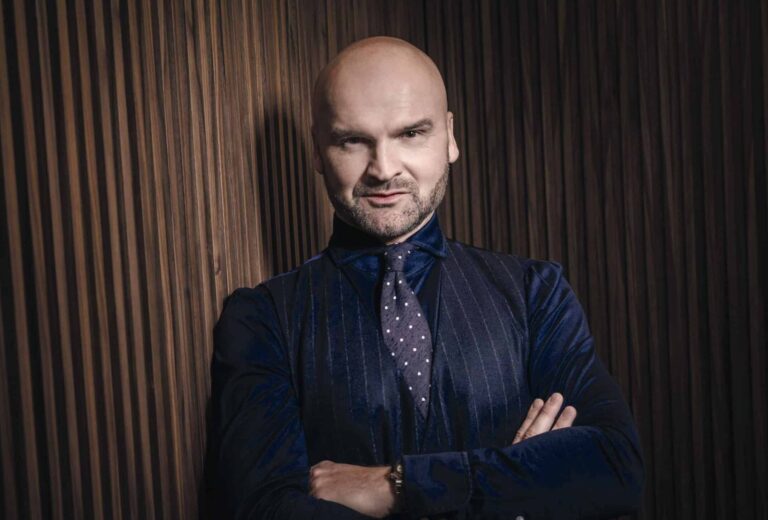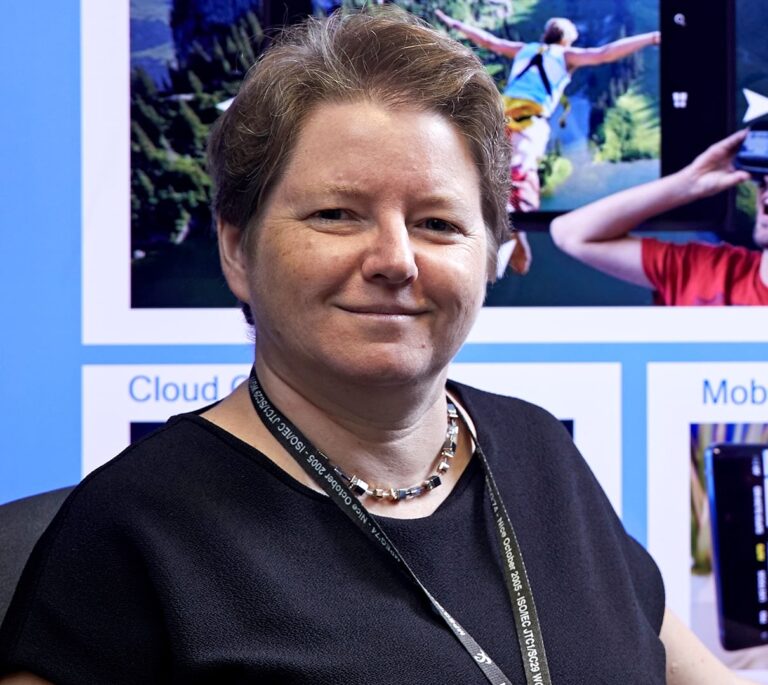Earning the customer’s trust
Interview with Lucyna Chwastowska, Director, Amazon Alexa Text-To-Speech.
Tell us briefly about your career path that has led you to your current position at Amazon. What attracted you to technology? What are the most important projects you have managed at Amazon in Poland?
After graduating from the Wrocław University of Technology with a degree in software engineering, working in the tech industry became my career goal and vision. Before joining Amazon in 2021, for nearly 20 years, I worked and later managed R&D centers in successful consumer electronics companies like Motorola, Tieto, BenQ and Siemens.
Today, I lead a global engineering and programming team of over 200 people for Alexa Text-To-Speech. Together, we develop text-to-speech conversion technology using generative machine learning models, more commonly known as Large Language Models, LLM. Thanks to our efforts, Alexa understands and communicates in various languages and with different voices. I am particularly proud of the fact that we have trained Alexa to speak with a male voice, which is significant for promoting equality in the tech industry.
I’d also like to mention that based on the solutions of Alexa Text-To-Speech, we train other Amazon voice platforms, and thus Polly, developed for AWS, which is also fluent in Polish.
Looking at how the development of technology is shaping our everyday lives, what are Amazon’s top priorities globally and how do the Polish R&D centers contribute to this global vision?
We want Alexa, as an AI technology, to be trusted by our customers and to provide them with support, advice and companionship every day. Moreover, we are working on a new dimension of AI for Alexa, which we call Ambient Intelligence. Alexa is meant to be always available – at any moment, from any place and from any device. It should also have the ability to be discreet and anticipate needs. Today, over 30 proc. of interactions in the smart home are initiated without the need for a voice command. Our programming and scientific teams in Gdansk, Warsaw and Cracow contribute to those innovations.
I know that you are personally involved in projects aimed at attracting women to the technology sector. Do you see a greater appetite from women to get involved in the sector? What are your key initiatives to encourage women into Tech?
We combat stereotypes and loudly declare that together we can change the world. This also pertains to women choosing a career in the tech industry.
Here at Amazon Development Center Poland, we engage in numerous initiatives promoting diversity and equality in the world of technology. Our training group regularly organizes open training sessions for women, both at the beginning of their professional careers and those considering requalification. During the recent Perspectives Women in Tech Summit event, we offered participants mentoring sessions with nearly 20 of our female colleagues. Also, the 4th edition of the Girls Do Engineering program, initiated by Ewa Kolczyk, Senior Software Development Manager from our Gdansk office, will be launched soon. This program was created to help high school students from the Tri-City consciously shape their careers in the engineering and technological sector. So far, three editions of the program have taken place, with 55 participants completing it.
I want to emphasize once again: engineering and technology are creative and innovative fields, offering numerous development opportunities for all women.
One of the growth engines for Poland is a huge pool of students graduating from tech facilities every year, the largest after Germany in Europe. How does Amazon approach universities?
We are expanding our collaboration with universities not only in cities where Amazon Technology Development Centers are located, but throughout Poland. We are actively building our brand and promoting job opportunities in the AI technology among male and female students, not just from technical fields od study. You can meet our team at industry events aimed at scientists, students, as well as at job fairs. For several years, we have been partners of conferences such as ML in PL (focused on the topic of Machine Learning in the academic and business environments) under the honorary patronage of the University of Warsaw or Ghost Day Applied Machine Learning organized by students of Poznań University of Technology as part of the EUNICE European University Alliance. We also offer student internship programs. It’s worth noting that we eagerly highlight the opportunities for a scientific career at Amazon, either as a full-time employee or a visiting scholar. Furthermore, we run the Amazon Service where scientists conduct advanced research in fields ranging from machine learning, through conversational AI and robotics, to quantum computing.
What impact does AI, the hottest IT trend of recent months, have on your work and Amazon? Are there any projects you are currently working on that you would like to share with us?
Amazon is at the forefront of AI technology in many areas; we have been using machine learning and artificial intelligence for more than 25 years. This technology is used in both customer services and operations: from recommendation engines that personalize shopping on Amazon, to AI-enabled robots that optimize order fulfillment in our warehouses and Ring cameras that make the neighborhoods around our homes safer.We have also launched entirely new business areas based on AI, such as Alexa.
There’s a lot of talk these days about large language models (LLM), so I’ll share an interesting fact: our Alexa is built on over 30 machine learning models to deliver an answer to customers’ questions in less than a second. Together with the team, we are working on making Alexa’s expressions more gender-, age-, accent-, language- and emotion-related. Through these projects, Alexa will inform us with joy when our favorite sports team wins and with sadness when a player is injured.
After so many years of creating new technologies that people around the world use, what do you think about the role of technology in business and everyday life?
Technology is building a more inclusive world. Alexa technology supports groups with disabilities in the areas of movement, hearing, vision and speech. Thanks to Alexa, people with limited mobility can use voice control, which makes their daily tasks easier. Those with hearing impairments can turn on the “Captions” feature on the screen and read speech instead of listening to it. With the „Show and Tell” feature on Echo Show devices, visually impaired users can identify products by holding them in front of the device screen. And finally, for all those with speech difficulties, there is an option to interact with Alexa by touch, using widgets on the screen or a virtual keyboard. Alexa also allows adjusting the speaking rate according to the user’s preference, or whispers to us when a child is sleeping in the next room. For me, technological innovations are not just a tool, but a mission, which I approach with great commitment and passion.







